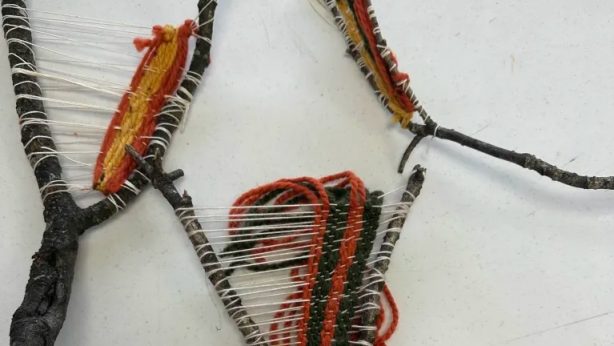2024 unConvention Speaker Spotlight: Jeanne Faulconer
With over twenty years of homeschooling across three states, Jeanne really has “been there and done that”! In addition to educating her three grown sons, she has been a vocal homeschool advocate and helped guide others through speaking at conferences. Jeanne also worked extensively in the Brave Learner Home community as its former director, was an avid writer and editor for homeschool magazines, and worked to organize co-ops. She is also a legacy member of our very own VAHomeschoolers Organization.
Jeanne has been active in so many different facets of homeschooling life over her full and varied career. She currently writes an ongoing advice blog for TheHomeSchoolMom.com called Ask Jeanne. It is a treasure trove of wisdom on everything from difficulties teaching spelling to what to do when the grandparents are resistant to the idea of homeschooling. If you haven’t visited it yet, it’s definitely worth checking out.
Given her experience, we asked Jeanne to share with us a bit about her homeschooling journey and her views on homeschooling in today’s world.
VAHomeschoolers: How were you first introduced to the world of homeschooling? What were some of the factors that led you to decide to homeschool your family?
Jeanne Faulconer: “I began homeschooling waaaaay back in 1997, and because some of my kids were widely spaced apart, I had my foot in several different eras of homeschooling. I always had friends who homeschooled, so I was comfortable with the idea, but honestly, my older children’s experience in school was what led our family to homeschool.
I loved seeing the transformation as they recovered their curiosity and confidence once we began homeschooling. While I would say we began homeschooling as an alternative to school, we continued homeschooling over the next 20 years because we found a lifestyle of learning we loved.”
What is a challenge you have faced in your personal homeschooling journey and how did you approach that challenge?
“Moving frequently for work has been a big challenge for us. This meant re-inventing homeschooling and finding a new community over and over. Networking was always my #1 priority after a move because networking helped me find our new people and our new places. I talked to people, joined stuff, started homeschool groups where none existed, and just kept trying.
And don’t get me started on finding all of our books and supplies over and over. So many boxes! Or on re-imagining our homeschooling in different apartments and houses—as well as in different settings, including in the suburbs, in the city, on Main Street in a small town, and in the country.
This is part of why I love presenting my talk called “Let Your House Do the Homeschooling”—I spent so much time setting up homeschooling in a long succession of homes. I hope what I learned through the years can be helpful to other parents.”
What advice would you give to a family just starting out with homeschooling?
“The advice to do some “deschooling” is truly good advice. If you aren’t familiar with deschooling, Google “deschooling” and “parental deschooling” to learn more about the transition from a school mindset to a homeschool mindset. Many of the advantages of homeschooling become so much more available when you are able to see all of the options because THIS IS NOT SCHOOL.
My other advice is not to believe homeschooling will solve everything or produce perfect kids. Sometimes homeschooling really enhances the sense that parents can control outcomes. However, homeschooling families also have problems, and homeschooled kids don’t always “turn out” as parents might envision. The reality of homeschooling is this: there is no homeschool guarantee (something I’ve written and talked about a lot!).
But to be fair, there is no public school guarantee or private school guarantee, either.”
Homeschooling can look very different from family to family. What are some tools/metrics you would suggest homeschooling families use to determine if their approach is working for their family?
“I suggest two things: keep a journal and meet (virtually or IRL) with other homeschool parents.
For the journal, jot down what you’re doing with the kids, your observations of their learning, and your notes about what they are asking to learn and do. Often, journaling will give you an abundance of confidence because you can re-read and see all the richness that is there. However, honest journaling can also lead you to become aware of concerns. Even as you write, you may realize that this child is on your mind for that reason, or challenges with a certain skill are on your mind, and so on. Journaling can help you hear what your own observations are telling you. Journaling turns the volume up on your observations, making them harder to ignore.
And the reason I say meet with other parents is because other homeschoolers keep us aware of the possibilities. Whether we participate in Facebook groups, park days, webinars, parents’ nights out, or co-ops, we can see additional ways families learn together. I don’t advise this because I think we should compare our 9-year-old with someone else’s 9-year-old; I advise it because homeschooling with others gives us additional information. We can learn about resources. We can learn what another parent is doing to address a concern. We can learn that other parents actually have this concern or that concern, which may open our eyes to a clearer picture of our own kids.
In other words, when you think about whether your homeschooling is working, look both inward and outward.”
What is a significant challenge facing the homeschool community right now? How do you think we can address it?
“As homeschooling becomes more popular, homeschooling gets both more positive and negative attention.
The positive attention means it is becoming a more lucrative consumer niche, and there will be companies ready to capitalize on homeschoolers as customers. Sometimes they will prioritize making money over delivering a truly useful product. We are already seeing lots of “online school” programs pitched as homeschooling that do not convey all of the advantages of homeschooling to a lot of the students who use these programs.
We’ll get some good providers as well, and those extra resources will be welcomed. Many online services, curricula, and classes for homeschoolers are excellent.
However, parents may THINK they are getting good homeschooling for their kids through some online school platforms that are actually not producing learning or improving skills. For example, kids aren’t learning to write by answering multiple-choice questions after reading passages. Kids may learn to choose the most likely answer to a math question without actually doing any mathematical thinking. Some online schools don’t include any kind of relationship with a teacher or other students, but a parent may think this is okay because “the content is covered.” Having been a homeschool evaluator in Virginia for many years, I know this is happening.
If these kinds of platforms are thought of as THE way to homeschool, they will eventually hurt the reputation of homeschooling in general.
Also? Parents may be charged for years for ineffective programs without realizing that the programs are indeed ineffective.
Also? Students will struggle with admission to college, college-level work, and employment—because they won’t have experienced truly effective homeschooling.
And of course, the negative attention on homeschooling just makes homeschoolers more ripe for stereotyping than ever. I’m fascinated by how viewers can watch a lovely video depicting healthy homeschooling and still respond with stereotypes.
Don’t read the comments, folks.
All that said, I’m confident that the work of today’s homeschool advocates will eventually expand the picture of homeschooling.”
Who are some of your biggest homeschooling influences and why?
“Because of homeschooling for so long, I have been influenced by different people in different seasons of homeschooling—and not all of them were homeschoolers.
Some of my sons’ mentors were such good people and amazing teachers, and I learned a lot from them. There is one soccer coach who did not even have children yet, but his “way” of developing players was so reinforcing to me as far as the way I wanted to homeschool. (What was his magic? Asking questions and encouraging questions).
I also did annual evaluations for years for homeschoolers. Let me tell you—that is an amazing education. I learned so much from homeschooling parents who shared their resources and ideas with me.
For a long time, I volunteered with VaHomeschoolers and served on the board, and our family usually participated in a co-op or homeschool group or both. The people in these groups were not only great to work with, but they also influenced my homeschooling. We had many conversations, passed books and links back and forth, and all homeschooled differently—while sharing ideas.
I have always been someone who takes what works to create engagement and leaves what doesn’t work. This means I can probably name a thought leader from every type of homeschooling that I have been influenced by, from Montessori to unschooling.
Finally, my mom would never have homeschooled. She was a school teacher, and she had a hard time separating education from school in her mind. That said, she nurtured my love for writing, reading, nature, and learning in general. Every time I look at Orion in the night sky, I think of her teaching me constellations and taking me outside to view an eclipse. Her example was everything.”
At this year’s convention, Jeanne will be speaking on the topic of organizing schooling in your home. In her presentation “Let Your House Do the Homeschooling”, she will teach us how to use our homes well and create an environment to foster education. Jeanne says “Let’s discuss setting up your home so it’s conducive to home education, minimizes preparation for learning, and helps children help themselves to learning materials and experiences—regardless of your homeschooling style. Ideas for the reality of having kids “use” your home all the time, coping with wear and tear, and providing a home front which works for real homeschooling families.”
If you’d like to come hear Jeanne Faulconer or any of the other speakers, we welcome you to visit our website to learn more! VaHomeschoolers.org
This interview was conducted and written by Valerie Coker. Valerie is a homeschooling mom of three, including two with special needs. Homesteading in southwest Virginia, she volunteers as a coordinator for Luke14 Ministries serving families with disabilities, and loves teaching at her local co-op. We’re glad to have her as a volunteer for The Organization of Virginia Homeschoolers.
Opinions expressed by individual writers in this blog do not necessarily reflect the views of the Board of Directors of The Organization of Virginia Homeschoolers, nor do they represent an official position of VaHomeschoolers. Writers’ views are their own, and readers are encouraged to research and explore homeschooling issues to their own satisfaction.


